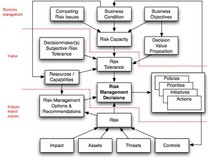
|

|
Steven Peisner heard about a new Texas requirement to shred documents with identifying information, and tried getting into the TX Attorney General website with bogus information:
To his surprise, Peisner was allowed to proceed (without giving the three-digit security code on the back of his credit card, no less), and within moments he had access to the site’s database. For $1 per search, he ran searches on several common last names including “Campbell,” “Smith” and “Jones,” as well as “Greg Abbott,” the attorney general.
— I.D.-Theft Watchdog Finds the State of Texas is Wide Open for I.D. Thieves, by Melissa Lafsky, Freakonomics blog, 12 Jul 2007 01:59 pm
He told Abbot about this, yet when he tried it again later, logging in with the name “Ima IDThief”, it worked just like before.
The scary part is that Texas is probably no better or worse than any other state or company about this sort of thing.
-jsq




 What do science fiction writer
What do science fiction writer

